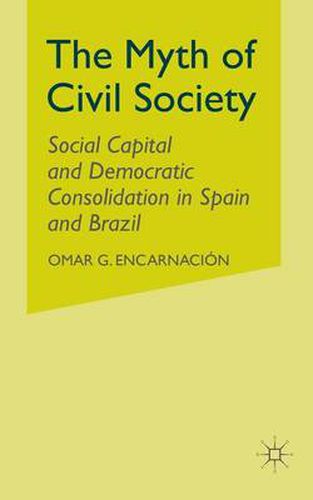Readings Newsletter
Become a Readings Member to make your shopping experience even easier.
Sign in or sign up for free!
You’re not far away from qualifying for FREE standard shipping within Australia
You’ve qualified for FREE standard shipping within Australia
The cart is loading…






This title is printed to order. This book may have been self-published. If so, we cannot guarantee the quality of the content. In the main most books will have gone through the editing process however some may not. We therefore suggest that you be aware of this before ordering this book. If in doubt check either the author or publisher’s details as we are unable to accept any returns unless they are faulty. Please contact us if you have any questions.
Almost irrespective of the geographic setting, the debate about the future of democracy in post-authoritarian societies is increasingly tied to the strength of civil society. A strong civil society is thought to be crucial to the emergence of successful democracies while a weak civil society is deemed the cause of flawed or frozen democracies. Using contrasting evidence from Spain and Brazil, this study challenges these widespread assumptions about contemporary democratization. It argues that it is the performance of political institutions rather than the configuration of civil society that determines the consolidation of democratic regimes.
$9.00 standard shipping within Australia
FREE standard shipping within Australia for orders over $100.00
Express & International shipping calculated at checkout
This title is printed to order. This book may have been self-published. If so, we cannot guarantee the quality of the content. In the main most books will have gone through the editing process however some may not. We therefore suggest that you be aware of this before ordering this book. If in doubt check either the author or publisher’s details as we are unable to accept any returns unless they are faulty. Please contact us if you have any questions.
Almost irrespective of the geographic setting, the debate about the future of democracy in post-authoritarian societies is increasingly tied to the strength of civil society. A strong civil society is thought to be crucial to the emergence of successful democracies while a weak civil society is deemed the cause of flawed or frozen democracies. Using contrasting evidence from Spain and Brazil, this study challenges these widespread assumptions about contemporary democratization. It argues that it is the performance of political institutions rather than the configuration of civil society that determines the consolidation of democratic regimes.